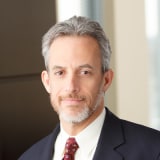 The ASCO Annual Meeting (ASCO#19) was a gathering of 42,000 people with a variety of interests in the realm of cancer care. Every year, this meeting marks a time of transformation in the field. It is the most prestigious platform in cancer research for showcasing new research discoveries with more than 2,400 abstracts presented and more than 200 oral presentations. It is also a major venue for dissemination of educational content, for social engagement, and for public policy thought and advocacy related to cancer. Drug discovery and practice changing cancer treatment trials are the typical focus post-ASCO summaries written by medical oncologists. I’ll leave that part to others, and highlight instead two themes that cut across the typical tracks organized for this meeting.
The ASCO Annual Meeting (ASCO#19) was a gathering of 42,000 people with a variety of interests in the realm of cancer care. Every year, this meeting marks a time of transformation in the field. It is the most prestigious platform in cancer research for showcasing new research discoveries with more than 2,400 abstracts presented and more than 200 oral presentations. It is also a major venue for dissemination of educational content, for social engagement, and for public policy thought and advocacy related to cancer. Drug discovery and practice changing cancer treatment trials are the typical focus post-ASCO summaries written by medical oncologists. I’ll leave that part to others, and highlight instead two themes that cut across the typical tracks organized for this meeting.
Let’s start with Twitter. The use of Twitter at the #ASCO19 meeting has steadily grown, and this year more than 14,000 unique participants sent tweets using this hashtag over the five day meeting, creating nearly 378 million impressions through more than 72,000 tweets. In prior meetings, the social media landscape was partially hijacked by hype from industry, but that issue was called out and was noticeably absent this year. The smartphone app for the meeting provided a link to an interactive site that allowed attendees to see the slides on their phone as they were presented, and this allowed people to take screenshots on their phones and tweet slides with comments. This drastically reduced the number of people lugging fancy cameras around to use photography to capture meeting content or the raising of smartphones to photograph the slides. A critical mass of attendees became effective reporters and it was possible to scout the most impactful content and observations through Twitter. Using that method, along with talking to colleagues, I noticed patient-centeredness and professionalism as noteworthy themes.
The official ASCO theme was well-grounded: "Caring for every patient, learning from every patient." This theme seems to be an homage to precision medicine, big data, and efforts to create a learning health care system. Ironically, latent behind this official theme is also the notion of patient-centeredness. It may seem surprising to the lay public, but keeping the focus on the patients and families dealing with cancer is much harder than we’d like to admit. A strikingly simple comment by Dr. Bishal Gyawali was worthy of a slide for emphasis “Clinical trials are there to serve patients, not the other way around.” Too often, we hear language to describe translational medicine as “bench-to-bedside and back.” However, this puts the patient in the role of being the fuel and not the focus of the endeavor. A better phrase would be bedside-to-bench and back.
As part of the educational program, Dr. Tony Back reminded oncologists about the importance of exploring each patient’s culture by exploring their relationships, concerns, and decisions. Looking at the big picture, Dr. Edmond Ang from New Zealand inspired members at the opening session with a narrative story called “Chemoboy,” and in his conclusion he shared a Maori proverb that posits “What is the most important thing in the world? It is the people. It is the people. It is the people.” Patient-centeredness also bubbled in discussions about clinical trial designs and endpoints. Dr. Ian Tannock, a luminary in the field and winner of the Alan S. Lichter Visionary Leader Award, emphasized that the relevant patient-centered endpoints for phase III randomized trials are overall survival and quality of life — anything else is a surrogate. This is a point too often overlooked in the race for discovering new drugs and drug targets. A further reflection of patient-centeredness came forth in discussions of how to best collect and present quality of life data with patients, and how to frame key survival endpoints in order to facilitate better shared decision-making. Moving beyond the realm of clinical trials to health services research, Dr. Veena Shankaran noted that the patient perspective on quality and value is certainly important to consider when interpreting studies in this realm, too. Finally, in relation to discussions about public policy, Dr. Vinay Prasad highlighted the range of patient perspectives around access to drugs through accelerated approval. He noted that the regulatory environment is currently weighted towards the patients whose perspective is more risk-taking and tolerant of uncertainty.
Enough about patients and families — what about us? Professionalism is another theme that resonated throughout the meeting. Dr. Ang noted in his opening session remarks that “oncology is a specialty that inherently concentrates people who are kind…but it is very difficult and we can lose our way.” That seemed to foreshadow some things to come. In the ASCO Voices session of storytelling entitled “Surgery is Never Elegant When Women Are In the Operating Room,” Dr. Monica Morrow, a key leader in the field of breast surgery, described the environment she faced early in her career and described bullying, misogyny, and sexual harassment. Later in the meeting, Dr. Marena Stasenko shared disturbing data about the experience of female trainees in gynecologic oncology with nearly 60% of women enduring offensive sexist remarks and 30% reporting unwanted sexual advances. In addition, a more subtle type of unkindness was highlighted by Dr. Narjust Duma. She investigated the way faculty were introduced at ASCO meetings in previous years and reviewed over 800 meeting videos. Black speakers (male and female) and female speakers were less likely to receive a formal address when introduced at the ASCO national meeting podiums. Although these topics are painful, the dialogue is healthy, and there is great hope on the horizon for improvements in the realm of professionalism, as well as steadfast attention to quality of care and patient-centeredness. In oncology, we are caring for every patient, learning from every patient, and also learning about the value of kindness towards ourselves and each other.
Michael J. Fisch, MD, MPH, FASCO tweets at @fischmd.
Image by Julia Tim / Shutterstock






